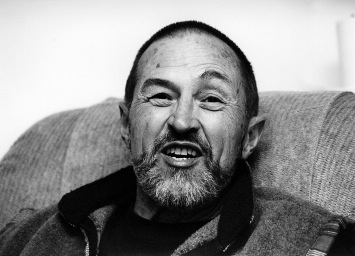
Fred Wah was born in 1939 in Swift Current, Saskatchewan to parents of Swedish and Chinese origin. He grew up in the West Kootenays in rural B.C. where his parents owned or ran several Chinese-Canadian cafés. Wah studied Music and English at U.B.C. (BA 1962) and took an MA in Linguistics and Literature at SUNY Buffalo in 1967. From 1967-1989, he taught at Selkirk College and David Thompson University Centre, Nelson while living in South Slocan, raising a family (with teacher and literary critic Pauline Butling), and writing more than a dozen books of poetry. They moved to Calgary in 1989, where he taught English and Creative Writing until his retirement in 2003. Currently Professor Emeritus at the University of Calgary, he divides his time between Vancouver and a seasonal home near Nelson.
Wah began publishing poetry in the 1960’s as part of an international avant-garde movement located in Vancouver. His early poetry is improvisational and experimental, based partly on his interest in jazz. Yet it is also deeply rooted in the geography of the Nelson area, as his first seven titles show: Lardeau, Mountain, Among, Tree, Earth, Pictograms from the Interior of B.C., and Loki is Buried at Smoky Creek. In the 1980’s Wah’s focus shifted to his mixed-race history in Breathin’ My Name with a Sigh and Waiting for Saskatchewan. With the publication of Diamond Grill (1996), a biofiction based on his experiences working in his father’s café, Wah emerged as a central figure in race writing in Canada and abroad. His collection of critical essays, Faking it: Poetics and Hybridity further elaborates his long-standing interest in mixed-genre texts and racialized poetics.
Wah has received major literary awards in three genres: Waiting for Saskatchewan won the Governor General’s award, So Far won Alberta’s Stephanson Award, and is a door won the Dorothy Livesay prize for poetry; Diamond Grill received Alberta’s Howard O’Hagan Award for short fiction; and his essay collection, Faking It: Poetics and Hybridity won the Gabrielle Roy Prize for Literary Criticism in English Canada.
Wah has given thousands of hours of volunteer work as an editor or contributing editor of small, grass-roots magazines and presses that are the life-blood of Canada’s thriving literary culture. Starting with Tish: A Poetry Newsletter (1961-1963) he has been involved with numerous magazines, including Sum, Open Letter, Swift Current (with Frank Davey, Canada’s first electronic literary newsletter) and West Coast Line. He was Poetry Editor for The Literary Review of Canada (2003-2005). Wah’s community work has also been extensive. He regularly organized readings and workshops at Selkirk College and David Thomson University Centre in the Kootenays. In Calgary he played a key role in starting and developing the Markin-Flanagan Distinguished Writers Program. Since moving to Vancouver in 2003, he has been engaged with the Kootenay School of Writing. He has been writer-in-residence and has taught writing workshops across the country. He served as President of the Writers Union of Canada (2001-02) and worked on its Racial Minorities and Social Justice Committees for several years.
Wah is well known both in Canada and abroad. His work has been widely anthologized and he has been invited to many international literary festivals to give readings and talks. In 2002-2003, he was selected for a Canada-Mexico cultural-exchange with residencies at Banff and Merida, Mexico. He is currently on faculty for the Banff Centre for the Arts “In(ter)ventions: Literary Practice at the Edge” program.
His recent publications include two collections of poetry, Sentenced to Light (2008) and is a door (2009). A selected poetry edited by Louis Cabri, The False Laws of Narrative, was published in 2009 by Wilfrid Laurier University’s poetry monograph series.
Source: red log